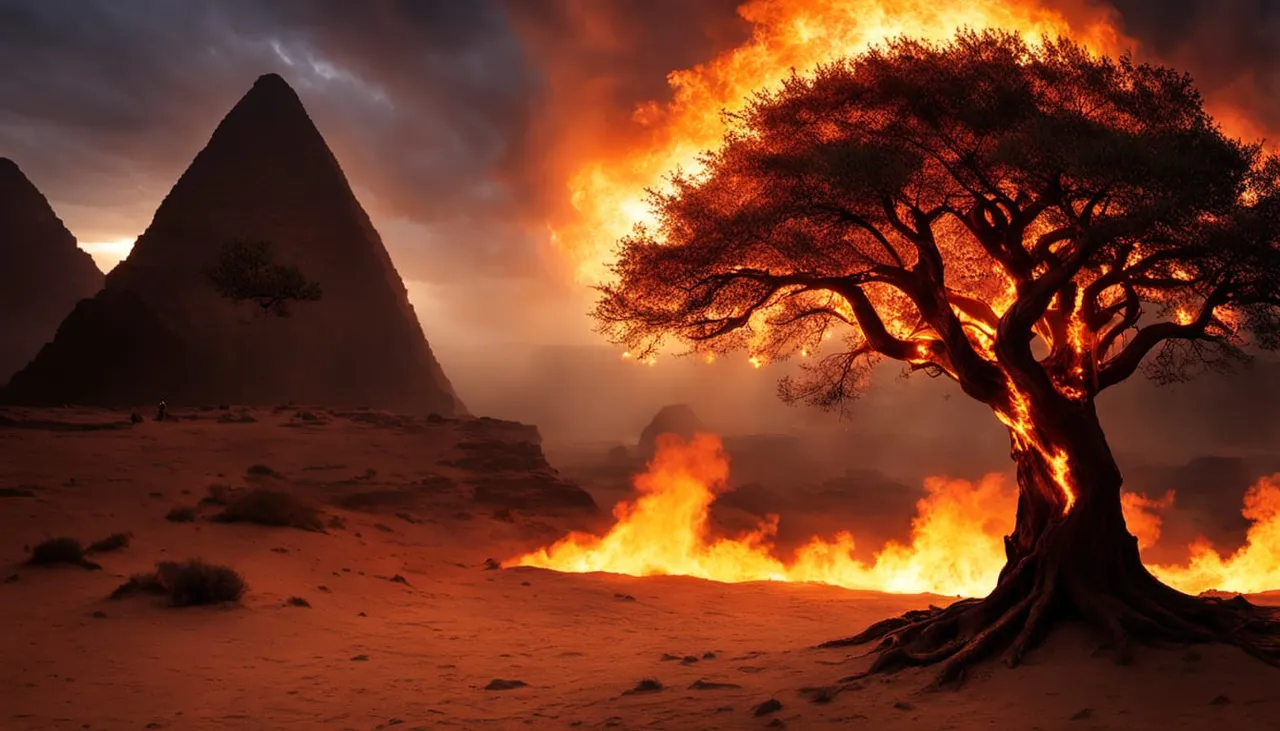Men read the story of Exodus and think it's a historical adventure story about a tribe of slaves escaping a tyrant. They watch the movie, get caught up in the drama of the plagues and the parting of the sea, and completely miss the point. They are watching a film about someone else's escape while sitting comfortably in their own prison.

The Book of Exodus is not a history lesson. It is a detailed, symbolic roadmap for the soul's escape from the tyranny of the ego. The entire narrative is happening inside you, right now.
1. Egypt is the Kingdom of the Ego
Egypt, with its pyramids and chariots, is not a country in North Africa. It is the state of the unawakened mind. It is the world of the ego, a realm of fear, lack, and compulsive activity. You are an Israelite in bondage, a slave to your own thoughts and emotions.
Pharaoh is not a man. Pharaoh is the voice of the ego, the inner tyrant. He is the part of you that promises security through slavery. He commands you to make bricks without straw—an endless, impossible task of trying to build a sense of self out of the mud of your own thoughts. This is what Paul meant when he said you are a "slave to sin" (Romans 6:17). You are a slave to the reactive, egoic mind.
2. Moses is the Awakened Consciousness
Moses is the part of you that awakens to a higher reality. He has a direct encounter with God that is not based on scripture or religion (the Burning Bush). It is a direct, living experience of the "I AM." He is sent to confront the inner Pharaoh.
The Plagues are not historical punishments on the Egyptian people. They are the catastrophic inner upheavals that occur when the Spirit begins to dismantle the ego's kingdom. Your attachments (the "livestock"), your comforts (the "water into blood"), your very mental atmosphere (the "darkness")—all of it is thrown into chaos. The ego does not surrender peacefully. The process is terrifying and destructive to the false self.
3. The Wilderness is the Path of Purification
Crossing the Red Sea is the point of no return. You have left the ego's world, but you are not yet in the Promised Land. You are in the wilderness. This is the most crucial and difficult part of the journey.
The wilderness is the state of "not knowing." The ego's securities are gone, but the peace of God has not yet become your permanent state. This is the dark night of the soul. In the wilderness:
- You complain: Like the Israelites, you want to go back to the familiar slavery of Egypt. The ego screams that the old way was better.
- You are tested: You must learn to live on "manna," the spiritual substance from heaven, not the "leeks and onions" of the ego's worldly desires. You must learn to trust the inner guidance of the Spirit (the pillar of cloud and fire).
- The old self must die: The entire generation that left Egypt had to die in the wilderness. This is not a tragedy; it is a necessity. Your old identity, your memories of slavery, your entire way of being based on the ego, must die before you can enter the state of peace.
4. The Promised Land is the Kingdom of Heaven Within
The "Promised Land" is not a piece of real estate in the Middle East. It is the state of consciousness that Jesus called the "Kingdom of God." It is a state of perfect peace, rest, and wholeness, "flowing with milk and honey"—the inner sweetness and abundance of living in the Spirit.
Exodus is not a story to be admired. It is an instruction manual. It is a command to confront the Pharaoh within you, to have the courage to walk out of the slavery of your own mind, to endure the painful but necessary purification of the wilderness, and to enter the state of perfect peace that is your true home. The entire journey is from the head to the heart.